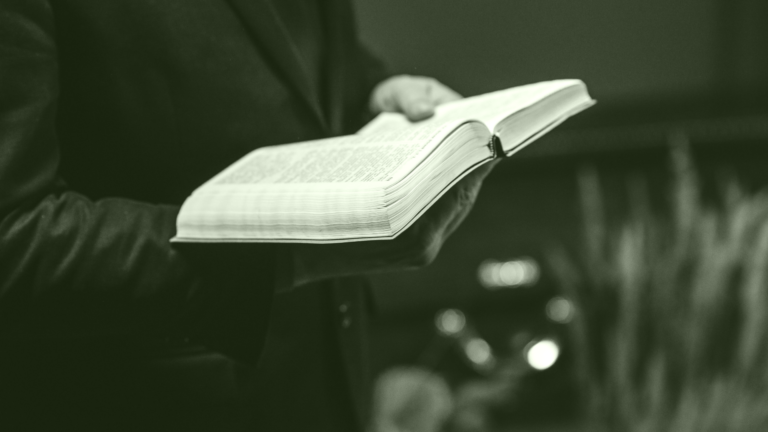When I turned 40, I took some time to think about the decade ahead. How is God going to lead me? What are areas in life and ministry that I need to think about? What are areas of personal and ministry growth?
As I began to ponder on these things, I began to realise that there are many areas in which I may not see a drastic change. There is some truth to the saying “You can’t teach an old dog new tricks”. But this does not mean we stop growing personally and professionally.
In my non-scientific opinion, your 20s are a season of discovery and your 30s are a season of mastery.
The 20s are when you begin to uncover your passions, gifts, areas of interest and so on. In your 30s you grow in experience and expertise in those specific areas.
The 40s are a season of fluency. Hopefully, by this time one has a clear head and a humble heart, to know your limits as well as your God-given passions.
As for me, the need for self-awareness became clear and felt vital to my future. I feel you need to grow in self-awareness, especially in your 40s, to build a foundation for the rest of your years.
In your 40s you can become cynical and bitter because you have lived long enough to face trials and temptations that make your soul weary. You begin to make fewer friends and your existing friends are too busy. Such is life.
Your marriage can become all about your children and soon you lack emotional and relational intimacy. You can begin to experience a crisis in your heart but are not sure of what to do about it.
I began to sense all this, and it dawned on me that my problems are not out there. They are in here, in my own heart.
I need God to help me grow in self-awareness, so I can understand my heart and allow Jesus to renew me, heal me, and comfort me.
Imagine a life where you can be emotionally equipped to handle any crisis, emotionally poised to be a non-anxious presence in this increasingly anxious world, emotionally strong for others to lean on, emotionally sensitive to serve others, and emotionally vulnerable for others so they feel safe to open up to you.
When you think about it, the need for self-awareness becomes self-evident. The first way to grow in self-awareness has to do with our emotions.
“You cannot be spiritually mature without being emotionally healthy,” says Peter Scazzero in his book The Emotionally Healthy Leader.
How we handle our emotions controls the quality of our relationships, the outcome of our leadership, the impact on those around us, and the legacy we leave behind.
For the most part, men are emotionally ignorant and illiterate. We either suppress our emotions or ignore them altogether. Even feeling them makes us uncomfortable, leave alone talking about them. We rarely understand them and rarely express them well.
Anger seems to be the one and only emotion we feel and express the most. In our culture, it is even seen as the manly thing to do. After all, Amitabh Bachchan epitomised “the angry young man” in all of us.
Here is a simple navigation system to begin exploring the murky terrain of our emotions.
Knowing Your Emotions
I struggled with a lot of anger and frustration. Then I began to learn that they were simply surface emotions. Behind them were feelings I ignored throughout my life so I was completely unaware of them.
Usually, our anger is concealing the feelings of sadness, grief, hurt, fear, anxiety, shame, or embarrassment. We intuitively suppress or express them in an unhealthy manner.
Learn to know and name your underlying feelings and emotions. Talk to someone who can help you understand your emotional experience. Personally for me, Untangling Emotions by J. Alasdair Groves and Winston T. Smith, and The Emotionally Healthy Leader by Peter Scazzero has been really helpful in this area.
Praying your Emotions
We do not just know our emotions and count from 1 to 100 for them to disappear or sleep over it so we feel better. God invites us to process our emotions and feelings with him in prayer.
We have a tendency to come to God with our “positive” feelings of happiness and gratitude, while we avoid and hide our “negative” feelings of anger and sadness.
God is aware of our hearts and he understands our feelings and emotions. He is not surprised. On the contrary, he invites us to find rest in him.
One way to engage and deal with our emotions is to pray our emotions. St. Ignatius Loyola developed a prayer tool called The Examen: A Daily Prayer that I have found particularly useful. It has helped me to take an honest audit of my daily emotions before God in prayer.
Rehearsing the Gospel
Without constantly remembering the gospel, my heart settles into its default position of self-pity and self-centeredness. It is “me against the world.”
I retreat into a world where I am right and everyone else is wrong. I feel sorry for myself and forget all that God has done for me. The aches and pains in your 40s can turn your heart bitter and ungrateful.
We need to regularly see and savour Christ as King on his throne, discipline ourselves to hear and receive from Christ as Prophet through his word, and receive comfort from the ever gentle and gracious Christ, our faithful Priest through his mediation on the cross.
Maybe you are not in your 40s and this season is in your distant future. You do not have to wait to learn self-awareness. Maybe you have missed this season and it lies in your distant past. It is never too late for God to renew and restore our hearts, marriages, children and friendships.










